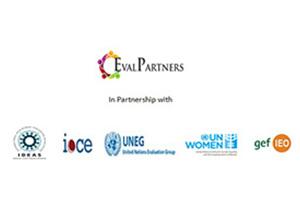EvalPartners, the global movement to strengthen national evaluation capacities for equity-focused and gender-responsive evaluation systems, declared 2015 as the International year of Evaluation. Several key stakeholders, including the United Nations Evaluation Group and the OECD/DAC EvalNet, joined the movement.
2015 is a year of global transformation, in which the new Sustainable Development Goals will be framed. Social equity and gender equality will be central to ensure the realization of sustainable and equitable development. Evaluation must be equipped to inform its design and implementation, both at global and national level. National development policies and programmes should therefore be informed by evidence generated by credible national evaluation systems that are equity-focused and gender-responsive, while ensuring policy coherence at regional and global level.
In this context, the global evaluation community is facing an overall challenge: How can the global evaluation community contribute to ensuring that evaluation will play a key role in shaping and contributing to the implementation of international (including future Sustainable Development Goals), regional and national policies and programmes to achieve sustainable and equitable development?
To address this challenge, EvalPartners, in partnership with the International Development Evaluation Association (IDEAS), the International organization for Cooperation in Evaluation (IOCE), the United Nations Evaluation Group (UNEG) and UN Women, is pleased to invite different stakeholders (VOPEs, multilateral organizations, bilateral, governments, CSO, etc) to join a networked global multi-stakeholder consultative process to brainstorm about the priorities and key areas of a global evaluation agenda for 2016-2020.
The consultation, building on the existing conceptual framework on evaluation capacity development (see figure below), will address the following four questions:
- What are the three most important strategies to ensure governments and parliaments improve policy making and implementation, by demanding and using equity-focused and gender responsive evaluation in decision making?
- What are the three most important strategies to ensure that Civil Society Organizations in general, and Voluntary Organizations for Professional Evaluations in particular, have stronger institutional capacities to contribute to equity-focused and gender-responsive national evaluation systems?
- What are the three most important strategies to ensure that individual evaluators have the capability to produce good quality, context-relevant, equity-focused and gender-responsive evaluations?
- How to ensure that enabling environment, institutional capacities and individual capabilities will mutually reinforce each other? And how to ensure that very diverse multi-stakeholders work in partnership based on their own value added and comparative advantages?
The networked global multi-stakeholders consultative processeswill consist of mainly two tier strategy:
- A global on-line consultation that will be kicked-off with a global live webinar on Wednesday, 3rd September 2014, at 9 AM New York time, to be followed by 8-weeks of on-line discussion (2 weeks for each of the 4 questions above)
- Consultations organized by different stakeholders with their own constituency, face to face and/or on-line.
The draft Global Evaluation Agenda 2016-2020 will be finalized and launched at the 2nd EvalPartners Global Forum to be held in Colombo, Sri Lanka in 2015. The Global Evaluation Agenda 2016-2020 will feed into networked action planning by key stakeholders involved, with the aim of increasing synergies and efficiencies to leverage comparative advantages of diverse stakeholders and achieve sustainable and equitable development results.
